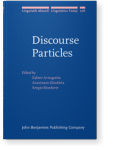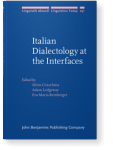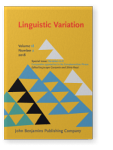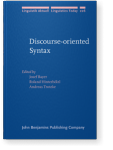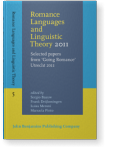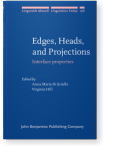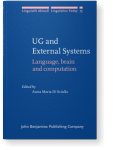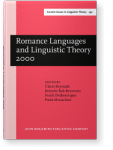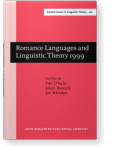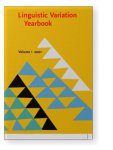Nicola Munaro
List of John Benjamins publications for which Nicola Munaro plays a role.
2022 Chapter 6. Anchoring primary and secondary interjections to the context Discourse Particles: Syntactic, semantic, pragmatic and historical aspects, Artiagoitia, Xabier, Arantzazu Elordieta and Sergio Monforte (eds.), pp. 157–178 | Chapter
On the basis of empirical evidence from various Italian dialects, I argue that primary and secondary interjections lexicalize different functional heads which are computed syntactically at the edge of the clause. Secondary interjections should be clearly distinguished from primary ones; only… read more
2019 On the syntactic encoding of lexical interjections in Italo-Romance Italian Dialectology at the Interfaces, Cruschina, Silvio, Adam Ledgeway and Eva-Maria Remberger (eds.), pp. 185–202 | Chapter
Based on evidence from Italo-Romance, in this article I argue that lexical interjections can be split into three categories, depending on whether they must, they can or they cannot be integrated with the associated clause; the degree of integration with the co-occurring clause depends on the merge… read more
2018 Complementizer doubling and subject extraction in Italo-Romance Variation in C: Comparative approaches to the Complementizer Phrase, Garzonio, Jacopo and Silvia Rossi (eds.), pp. 315–335 | Article
In this article I analyze the complementizer doubling construction attested in some early and modern Italo-Romance varieties, where a preposed (clausal or non clausal) constituent associated to the selected clause appears in the embedded left periphery preceded and followed by a subordinating… read more
2015 On the interpretation of modal particles in non-assertive speech acts in German and Bellunese Discourse-oriented Syntax, Bayer, Josef, Roland Hinterhölzl and Andreas Trotzke (eds.), pp. 41–70 | Article
In this article, we analyze the syntactic and semantic properties of modal particles appearing in non-assertive speech acts in German and in Bellunese. We propose that modal particles in exclamations and special questions function as evidential markers interacting with the evaluative component to… read more
2013 On the syntax of focalizers in some Italo-Romance dialects Romance Languages and Linguistic Theory 2011: Selected papers from 'Going Romance' Utrecht 2011, Baauw, Sergio, Frank Drijkoningen, Luisa Meroni and Manuela Pinto (eds.), pp. 157–174 | Article
In this article I will discuss the distributional properties of focalizers in different Italian dialects, providing evidence for Kayne (1998)’s analysis of focalizing particles and for his overt movement approach to scope relations, and highlighting the necessity of widening narrow syntactic… read more
2010 On the edge-feature of particles, interjections, and short answers Edges, Heads, and Projections: Interface properties, Di Sciullo, Anna Maria and Virginia Hill (eds.), pp. 67–86 | Article
The paper investigates the interface legibility and processability of minimal syntactic elements that play an important role in the interpretation and typing of the associated clause. It is argued that elements like interjections, shorts answers and sentential particles are endowed with an… read more
2005 Computational puzzles of conditional clause preposing UG and External Systems: Language, brain and computation, Di Sciullo, Anna Maria (ed.), pp. 73–94 | Article
2002 Splitting up subject clitic-verb inversion Romance Languages and Linguistic Theory 2000: Selected papers from ‘Going Romance’ 2000, Utrecht, 30 November–2 December, Beyssade, Claire, Reineke Bok-Bennema, Frank Drijkoningen and Paola Monachesi (eds.), pp. 233–252 | Article
2001 Free relatives as defective wh-elements. Evidence from the North-Western Italian dialects Romance Languages and Linguistic Theory 1999: Selected papers from ‘Going Romance’ 1999, Leiden, 9–11 December 1999, D’hulst, Yves, Johan Rooryck and Jan Schroten (eds.), pp. 281–306 | Article
2001 Eppur si muove!: On comparing French and Bellunese wh -movement Linguistic Variation Yearbook 2001, Pica, Pierre (ed.), pp. 147–180 | Article
This article offers a comparative syntax approach to wh-questions in French and Bellunese, a Northern Italian dialect spoken in the town of Belluno. A striking difference between the two languages, otherwise very closely related, lies in the fact that bare wh-words in root questions, which display… read more
